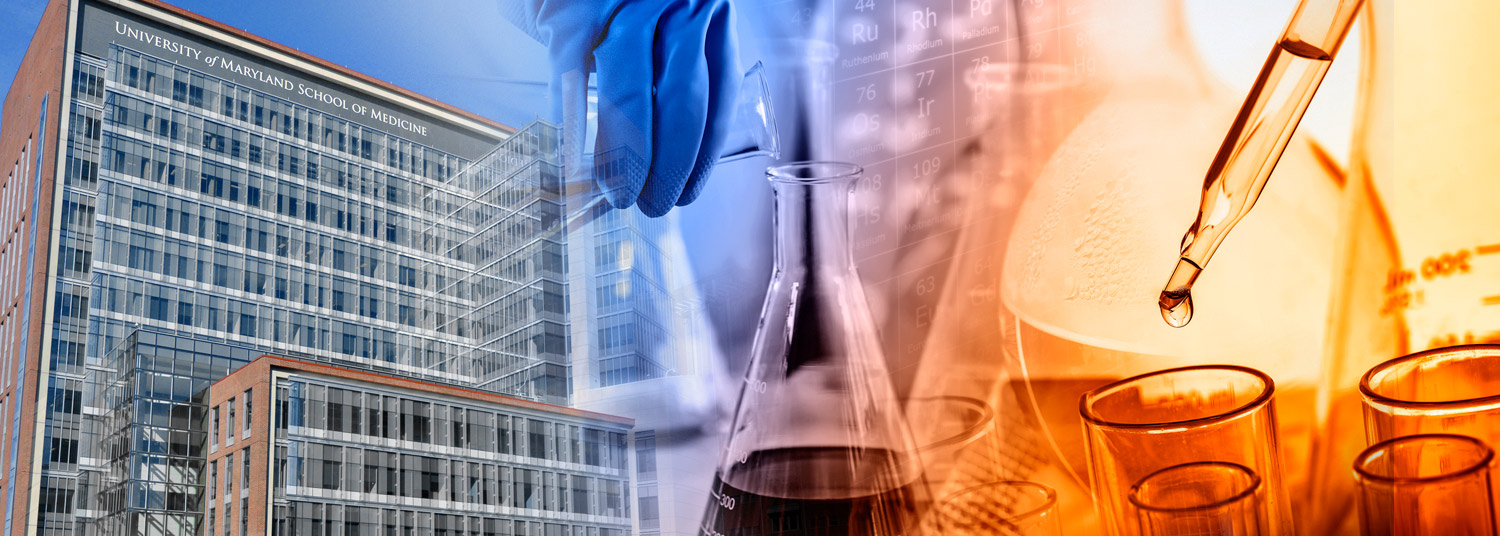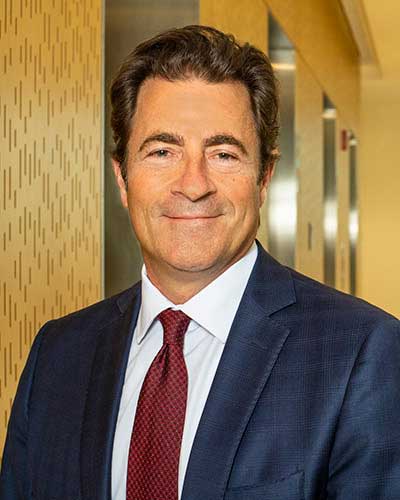August 18, 2022

 In His New Role, Dr. O’Donnell Will Oversee UMSOM’s Broad Research Enterprise; Continue to Advance School’s Position as Global Leader in Biomedical Research
In His New Role, Dr. O’Donnell Will Oversee UMSOM’s Broad Research Enterprise; Continue to Advance School’s Position as Global Leader in Biomedical Research
University of Maryland School of Medicine (UMSOM) Dean Mark T. Gladwin, MD announced today that Christopher P. O’Donnell, PhD, Associate Vice Chancellor for Emerging Technologies in Health Sciences Education at the University of Pittsburgh, has been named Vice Dean for Research Development and Operations at the UMSOM, effective September 1, 2022. Dr. O’Donnell, who has led the integration of diverse digital technology learning initiatives across Pitt Health Sciences, joins Dean Gladwin as part of UMSOM’s senior leadership team. Dr. Gladwin began his tenure as Dean at UMSOM on August 1.
An internationally renowned integrative physiologist, Dr. O’Donnell will lead the research mission and serve as advisor to the Dean in matters of research strategy and operations. His responsibilities will include oversight of the School’s broad research functions, including the UMSOM’s Offices of Research Affairs, Research Development and Operations, and Compliance/Conflict of Interest. Dr. O’Donnell will further the School’s strong position in biomedical research and discovery among the top echelon of medical schools. Over the past two decades, UMSOM has seen historic growth in its research funding portfolio – with total funding increasing from $323 million in 2006 to approaching $600 million in 2020.
 “Chris O’Donnell has a scientific creativity and strategic understanding of the nuances necessary for success in academic medicine that he used at Pitt to build an incredible funding record, both personally and at the institution level,” said Dean Gladwin. “He recognizes the importance and complexity of training physician-scientists and increasing the number of T32-funded programs that offer a rigorous academic pathway for junior investigators.”
“Chris O’Donnell has a scientific creativity and strategic understanding of the nuances necessary for success in academic medicine that he used at Pitt to build an incredible funding record, both personally and at the institution level,” said Dean Gladwin. “He recognizes the importance and complexity of training physician-scientists and increasing the number of T32-funded programs that offer a rigorous academic pathway for junior investigators.”
Dr. O’Donnell will seek to build additional scientific partnerships within the University of Maryland, Baltimore (UMB), the University of Maryland, College Park, and the University of Maryland, Baltimore County (UMBC) through the MPowering State initiative, as well as with other collaborative opportunities. He also will coordinate the research strategy with the UMSOM and campus leaders of the Graduate Program in Life Sciences (GPILS).
“This is a tremendous opportunity to use my experience and build on the University of Maryland School of Medicine’s significant biomedical progress in recent years,” said Dr. O’Donnell. “I’m excited to help Dean Gladwin achieve his vision and to further advance the institution’s national and international prominence.”
In the area of operations, Dr. O’Donnell will partner with the Office of Business Affairs within the Dean’s Office to plan for how research space is assigned, and suggest strategies for the most efficient use of that space. This work will include overseeing the scientific resources of the Center for Innovative Biomedical Resources (CIBR), in collaboration with a CIBR Advisory Committee. He will further work with the Business Affairs office to review current financial investments and institute long-term planning for those investments. He also will serve as a liaison with the Veteran’s Administration Medical Center (Baltimore) leadership in regard to jointly funding faculty, space, and research collaborations.
Dr. O’Donnell joined the faculty of the University of Pittsburgh School of Medicine’s Department of Medicine’s Division of Pulmonary, Allergy, and Critical Care Medicine in 2004, and became an active leader, researcher, and administrator. As Executive Vice Chair for Academic Affairs in the Department, he managed a faculty of almost 800, established a T32 funding stream in all 10 divisions and two institutes, had oversight for a range of programs that encompass strategic planning, recruitment, space management, budget analytics, and funding and career development initiatives.
As a scientific investigator, Dr. O’Donnell studies the destructive effects of sleep apnea on the body, specifically what happens when oxygen levels are too low and how this impacts metabolism and functioning of the heart and lungs. Dr. O’Donnell began his career in academic medicine at Johns Hopkins University School of Medicine before joining Pitt’s faculty. Since 1996, he has been a principal investigator continuously funded by the National Institutes of Health and has published more than 100 original, peer-reviewed data papers. He has held leadership roles with an NIH study section and associate editorial roles with the journals Obesity and the Journal of Applied Physiology.
In addition to his research, Dr. O’Donnell was appointed the chief operating officer for the Pitt COVID-19 Medical Response Office, helping to shepherd his institution through the uncharted waters of the pandemic.
Dr. O’Donnell received his B.S. Degree in Physiology from the University of Otago, New Zealand, graduating with first-class honors. He completed his Doctorate Degree in physiology at Cambridge University, followed by postdoctoral training in physiology at the University of California, San Francisco.
About the University of Maryland School of Medicine
Now in its third century, the University of Maryland School of Medicine was chartered in 1807 as the first public medical school in the United States. It continues today as one of the fastest growing, top-tier biomedical research enterprises in the world -- with 46 academic departments, centers, institutes, and programs, and a faculty of more than 3,000 physicians, scientists, and allied health professionals, including members of the National Academy of Medicine and the National Academy of Sciences, and a distinguished two-time winner of the Albert E. Lasker Award in Medical Research. With an operating budget of more than $1.3 billion, the School of Medicine works closely in partnership with the University of Maryland Medical Center and Medical System to provide research-intensive, academic and clinically based care for nearly 2 million patients each year. The School of Medicine has nearly $600 million in extramural funding, with most of its academic departments highly ranked among all medical schools in the nation in research funding. As one of the seven professional schools that make up the University of Maryland, Baltimore campus, the School of Medicine has a total population of nearly 9,000 faculty and staff, including 2,500 students, trainees, residents, and fellows. The combined School of Medicine and Medical System (“University of Maryland Medicine”) has an annual budget of over $6 billion and an economic impact of nearly $20 billion on the state and local community. The School of Medicine, which ranks as the 8th highest among public medical schools in research productivity (according to the Association of American Medical Colleges profile) is an innovator in translational medicine, with 606 active patents and 52 start-up companies. In the latest U.S. News & World Report ranking of the Best Medical Schools, published in 2021, the UM School of Medicine is ranked #9 among the 92 public medical schools in the U.S., and in the top 15 percent (#27) of all 192 public and private U.S. medical schools. The School of Medicine works locally, nationally, and globally, with research and treatment facilities in 36 countries around the world. Visit medschool.umaryland.edu
Contact
Office of Public Affairs
655 West Baltimore Street
Bressler Research Building 14-002
Baltimore, Maryland 21201-1559
Contact Media Relations
(410) 706-5260
Related stories

Thursday, September 14, 2023
UMSOM Researchers Identify Important New Signaling Molecule Involved in Vascular Health
In the 25 years since the Nobel Prize was awarded for discovering the role that nitric oxide (NO) plays in the cardiovascular system, researchers have been racing to learn more about how this mysterious signaling molecule works to repair blood vessels damaged by a heart attack, stroke or other cardiovascular event. University of Maryland School of Medicine (UMSOM) researchers and their Wake Forest University (WFU) colleagues today announced an important missing piece of the puzzle.
